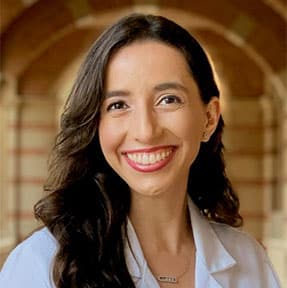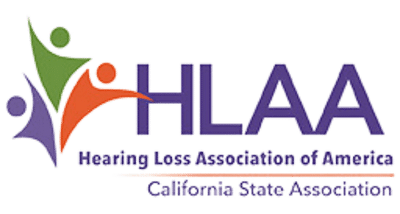
Los Angeles has a special place in my heart. It is where I had my first internship at the former House Ear Institute (AKA House Research Institute, now part of UCLA). It is where I met my first mentor with hearing loss, Dr. Ray Goldsworthy, with whom I remain in contact. It is where I discovered the Hearing Loss Association of America, the HLAA-Los Angeles chapter, HLAA-CA, and The Hearing Loss Californian. It is where I met Grace Tiessen and made many more amazing friends. And it is now where I am attending medical school at UCLA’s David Geffen School of Medicine. As most of the HLAA community knows me primarily through the lens of advocacy, I hope to share more about why I chose to pursue medicine.
Since eighth grade, my interest in medicine has been deeply connected with my passion for hearing loss science and disability advocacy. Hundreds of millions of people around the world have sensorineural hearing loss due to damage in the cochleae in our inner ears. The power that such a small organ has in our lives while remaining completely underappreciated and underestimated by society mesmerizes me. While earning my master’s degree, I also learned about the wide applications that medical devices like cochlear implants have on the healthcare industry as a whole. In addition, I believe hearing loss needs to be recognized as a preeminent public health issue.
From an advocacy perspective, ableism* is widely prevalent. I’m constantly experiencing micro- and macro-aggressions and encounter discriminatory practices related to my disability, yet disability is rarely integrated into conversations about diversity. Unfortunately, people with disabilities are grossly underrepresented in the field of medicine, medical schools provide little to no training on how to care for patients with disabilities, and people with disabilities face tremendous healthcare disparities. Think about it. Can the average person name a doctor with prelingual hearing loss? When was the last time you were asked if you needed accommodations at a medical visit? Were you provided any resources on how to manage your hearing loss?
To truly address the barriers patients with disabilities face, we must address the inaccessibility of the field itself. As a future doctor, I aim to increase representation of disability in medicine, to address disability healthcare disparities, and to make disability an integral part of diversity discussions. I hope that my advocacy efforts will continue to pave the way for future students with disabilities, just as many earlier disability leaders did for me.
Medical school has been my dream since I was a child. While my reasons for entering medicine have changed over the years and the language with which I describe my passions has evolved, my unfaltering love for hearing loss and health care have not changed. I am so excited to finally be actualizing my childhood dream in the city where I discovered HLAA.
*Ableism – Discrimination or prejudice against people with disabilities, especially physical disabilities.
Zina Jawadi is currently attending medical school at UCLA with the David Geffen Medical Scholarship, a merit-based full scholarship. Before medical school, she was a Decision Analytics Associate at ZS Associates, an international management consulting firm specializing in health care. Zina earned a BS in biology and MS in bioengineering, both from Stanford University. Since 2019, Zina has served on the HLAA Board of Directors. She served on the HLAA-CA Board of Trustees from 2013 to 2019, holding the positions of secretary, vice president., and president. She has prelingual bilateral sensorineural hearing loss and wears hearing aids.



